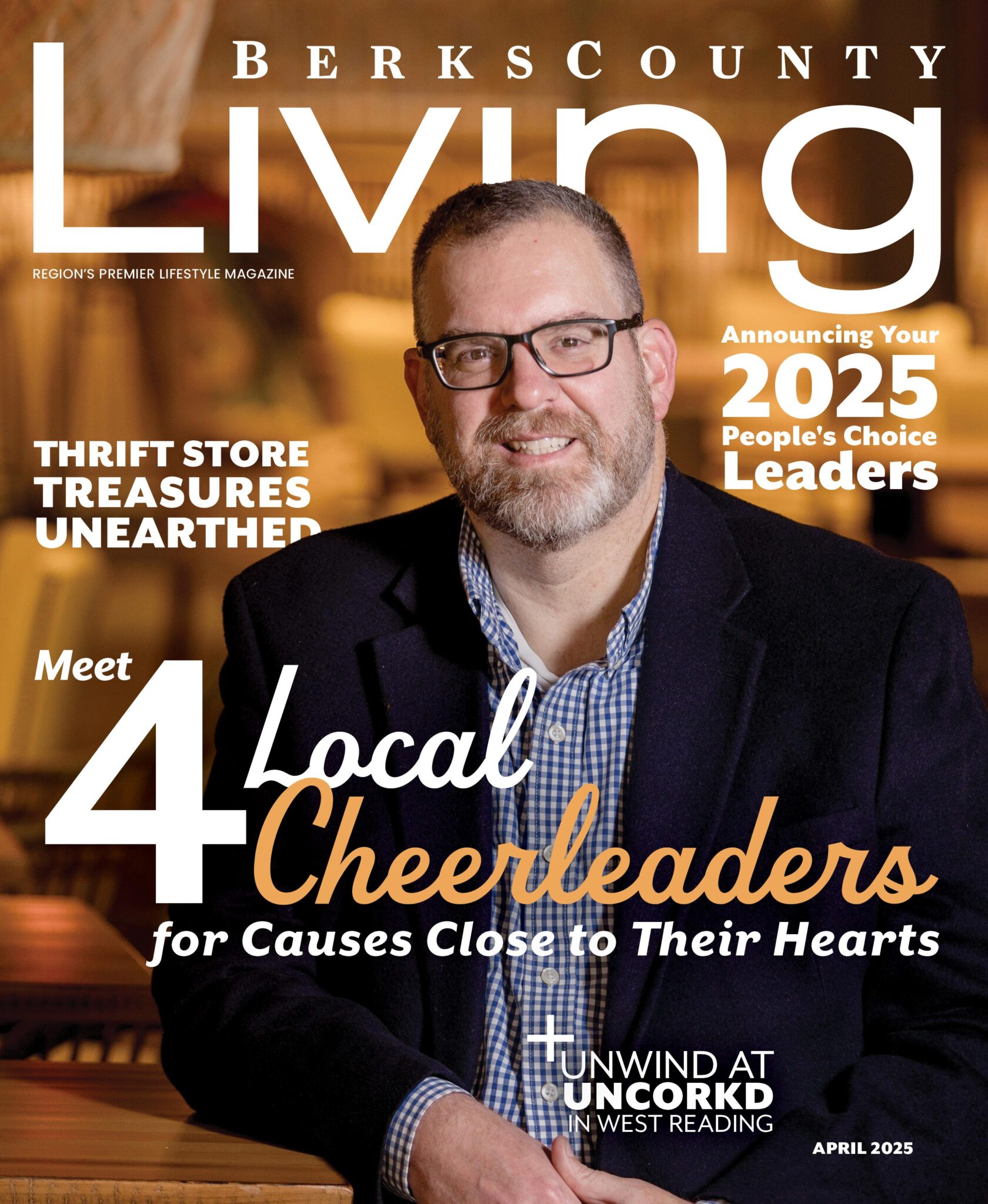
Anyone who watches the evening news, skims a daily newspaper, or spends even the smallest amount of time surfing sites like Forbes or CNN Money knows this well. Even those who dedicate their entire lives to figuring out the ups and downs of the economy can be mistaken, and the rest of us are pretty much in the dark–relying solely on media stories and word-of-mouth reports from friends and co-workers to figure out how far each one of our paychecks will get us. With that in mind, we sat down with some of Berks County’s finest financial experts and asked them to clear a few things up.
As a first time home buyer, what do I need to be prepared with when applying for a mortgage?
First time home buyers should be prepared with the following:
- Income and employment information (including one month’s pay stubs, two most recent W-2s, two most recent tax returns, and two years of employment history)
- Asset information (including two months of bank/financial statements for all accounts being used in purchase process)
- Credit information (including credit report, explanations of any derogatory credit, evidence of credit that might not appear on the report)
- Agreement of Sale (if executed)
- Other information (home buyer education for first time buyers, divorce decree/separation agreement, rental references for those currently renting)
Michael L. White, Senior Vice President VIST Bank: A Tompkins Community Bank, 1240 Broadcasting Rd., Wyomissing, Customer Care Center: 888.238.3330, vistbank.com
I’m looking for a new car. Is there a down-side to leasing? The monthly payment is much cheaper.
Depending on preference, there are upsides and downsides to both leasing and purchasing a vehicle. Leases work best for those who like to stay in a car for no more than 2-3 years (the standard length of a lease) and have no issue keeping an eye on the amount of miles they drive, as there are usually limitations. With a lease, customers can also upgrade to premium options and keep the monthly payment lower. If you finance the full purchase price of a vehicle, the car is yours outright once your payments have ended. Also, there are no mileage limitations and banks are currently offering extremely low finance rates.
Nathan Weaber, Director of Finance, Eisenhauer Nissan/Saab, 6210 Penn Avenue, Wernersville, 610.678.8071, 866.530.3991, eisenhauercars.com

What is a safe amount of money I should have saved in case of an emergency or job loss?
Each person’s “safe amount” will be as individual as they are. The standard answer of having 6 to 12 months of income saved is a solid place to start. However, writing an “emergency budget” during stable times will provide an efficient path for the use of your funds. Think of expenses that you would not normally incur, such as temporarily higher healthcare costs. With a plan, you will have a sense of financial order, not just a time of unstable survival. This process should help you determine the appropriate amount that you would need to save prior to a time of difficulty.
Robert L. Showalter, Vice President of Commercial Lending Fleetwood Bank, 1150 Berkshire Blvd., Ste. 130, Wyomissing, 610.208.0840, firstfleetwood.com
I want to get my older teenagers involved in handling their finances. Where do I start?
If your teenagers are earning an income, begin by having them put a percentage of that income into a savings account. It is important for them to learn the concept of “paying themselves first.” The remaining funds (including any allowance they might receive) can be deposited on a pre-paid student debit card. The student only has access to the funds that have already been deposited, and the card can be used at an ATM as well as to make purchases. It’s a safe way to teach your child basic financial management skills, while ensuring he or she avoids credit card debt and overspending.
Julie M. Kemp, CFP, Financial Planning Advisors Inc., 1122 Penn Avenue, Wyomissing, 610.376.6334, financialpa.com
If my spouse or partner passes away and leaves me the entirety of his or her estate, will I have to pay any kind of tax?
The answer differs dramatically depending on whether the deceased was your spouse or your partner. If he or she was your spouse, any inheritance you receive will be free of both Pennsylvania inheritance and federal estate tax. If, on the other hand, the deceased was your partner to whom you were not married, you will pay a 15 percent Pennsylvania inheritance tax on what you receive and [in most cases] a 40 percent federal estate tax. Additionally, if you inherit certain types of assets, such as qualified retirement plans, IRAs or annuities, you will also pay some amount of income tax when you take distributions from the account, whether or not you were married to the deceased.
Brian R. Ott, Esquire Barley Snyder Attorneys at Law, 50 N. 5th St., 2nd Floor, Reading, 610.376.6651, barley.com
I’m getting ready to invest in the stock market. A friend recently told me to make sure that I “diversify.” What exactly is diversification?
Investing with diversification means owning a diverse group of companies in the industries that you feel are attractively valued in the market. As a result, your participation is spread out among multiple companies and industries that are well suited for helping you achieve your personal financial goals. Very thoughtful diversification can also help make the investing experience more consistent and predictable, which is what we focus on within our practice.
James Middleton, CFM, CPM, CRPC Middleton, Kreitz & Associates Merrill Lynch Wealth Management Services, 985 Berkshire Blvd., 2nd Floor, Wyomissing, 610.320.6363, fa.ml.com/middleton.kreitz
What should I consider when choosing a life insurance policy for myself?
When evaluating reasons to purchase life insurance with a client, I simply use the acronym LIFE:
- Liabilities – What bills do I have that will be passed to my family?
- Income – How would the loss of income affect my family?
- Funeral Expenses – What kind of service do I want? How much will it cost?
- Education – Do I want to fund a college education for my children/grandchildren?
These four questions will begin the discussion to roughly assess a client’s life insurance needs. Further information reagarding health, age and limits will then lead to the type of product and cost that will fit best.
Stephen M. Yeity, CPCU CIC CrossKeys Insurance Inc., 5035 Pottsville Pike, Reading, 610.916.6190, crosskeysins.com
If I’m close to retirement and don’t have a 401(k) but would like to put some money aside, would I be better off starting a 401(k) or putting that money into another kind of savings account?
It’s best to maximize saving for retirement early in your working life, but it’s never too late to start. If your employer has a 401(k) Plan, make the maximum contributions you can afford. If you’re not covered by a retirement plan, an Individual Retirement Account (IRA)–either traditional or Roth–may be right for you. For 2013 you’re permitted to contribute up to $5,500 ($6,500 if you’re 50 or older). With a traditional IRA, your contributions may qualify for a federal tax deduction, and IRA earnings are tax deferred until you make withdrawals. With a Roth, you’ll pay tax now, but the earnings are tax free and withdrawals more flexible than those from a traditional IRA. Whichever you choose, the sooner you start saving, the more benefit you’ll realize. Talk to your tax advisor to determine what’s best for you!
Lori Muhlenberg, Senior Vice President & Personal Wealth Sales Manager, National Penn Investors Trust Company, 2201 Ridgewood Dr., Ste. 180, Wyomissing, 610.371.2061, npitc.com
Read Part 1 of our Questioning Your Finances article.
















